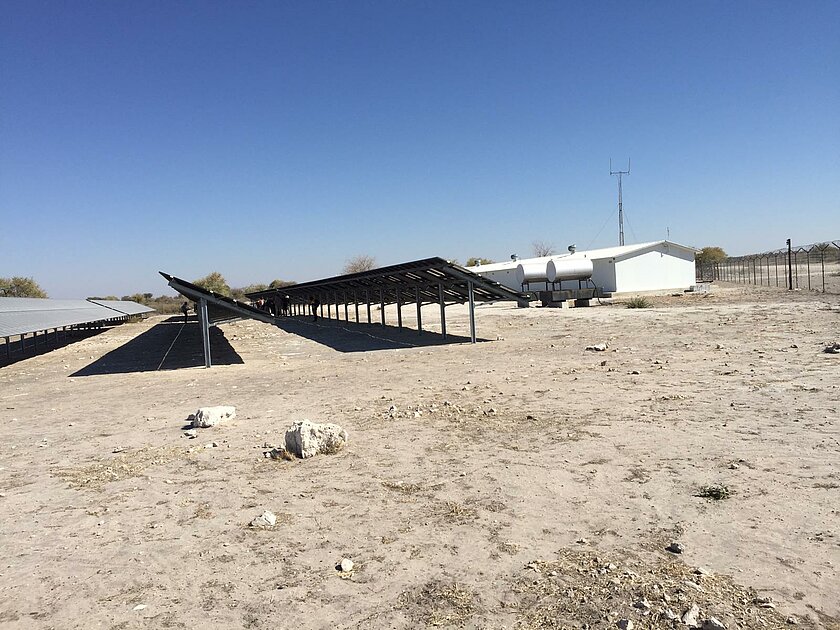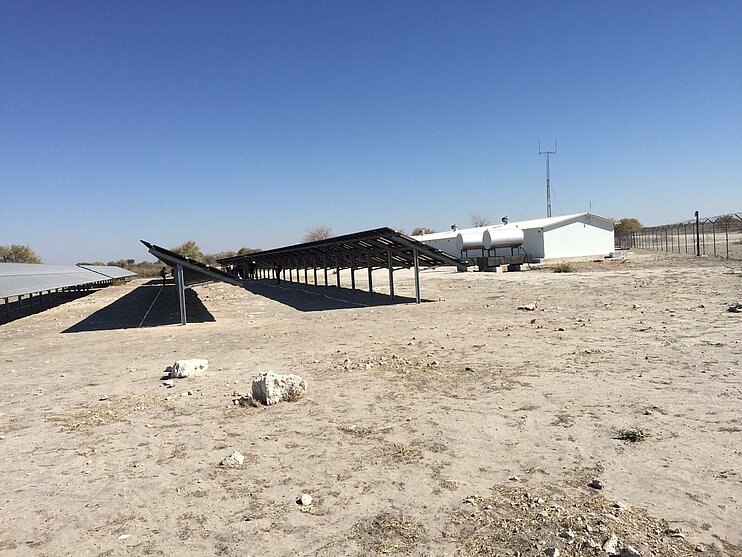PROCEED
Pathway to Renewable Off-Grid Community Energy for Development
Structured analysis of existing off-grid systems - A pathway to a sustainable energy supply for remote areas in Namibia
Project description
In large parts of Namibia, connecting rural households to the national power grid is neither technically nor economically feasible. The lack of access to electricity prevents technological and economic development, particularly in rural areas. Despite good availability, the usage of renewable energies has so far been limited. In cooperation with the Technical University of Ingolstadt, the University of Bayreuth and IBC Solar as well as Namibian partners, HNU is researching the application of decentralised electricity grids, so-called mini-grids, which are restricted to smaller areas. Decentralised models for the energy infrastructure are to be developed that meet the respective local electricity demand, use current technical possibilities and are accepted by the rural population. The island networks should be economically viable and easy to maintain. In the work package "Mini-Grid Economics," HNU contributes its business expertise and investigates the question of a cost-covering tariff and payment system for mini-grids, based on suitable business models for the commercial use of the electricity generated.
Project team
Project consortium
Scientific partners
- Coordinating university: Technische Hochschule Ingolstadt (THI), Institut für neue Energie-Systeme (InES)
- Universität Bayreuth – Geographisches Institut, Lehrstuhl für Sozial- und Bevölkerungsgeographie (UBT)
- Namibia Energy Institute (NEI), supported by the Ministry of Mines and Energy Namibia (MME)
Industry partners
- IBC Solar AG (IBC)
- Alensy Energy Solutions (Pty) Ltd (Alensy)
- Renewable Energy Industry Association of Namibia (REIAoN)
Practice partners

Work packages
WP 1Mini-Grid Community
- University of Bayreuth
- anthropological and geographical perspective as well as socio-economic sustainability considerations
WP 2Mini-Grid Economics
- Neu-Ulm University of Applied Sciences
- Investigation of the economic and financial dimensions of mini-grids
- Definition of typical Productive Use Cases
WP 3Mini-Grid Technology
- Ingolstadt University of Technology
- technological investigation of existing off-grid power supply systems
WP 4Mini-Grid Sustainability
- Neu-Ulm University of Applied Sciences
- bundles the core results from AP 1, 2 and 3
- Technology transfer, strengthening of the practical orientation of courses in the field of renewable energies
What is a Mini-Grid?
A mini-grid, also known as a micro-grid or island grid, is an installation of electricity generators and possibly energy storage systems that is independent of the national grid and supplies electricity to a localized group of customers. They are often powered by renewable energy or a mix with fossil fuels. The interdisciplinary PROCEED project is investigating three existing, predominantly solar-powered mini-grids in Namibia: in Gam, Tsumkwe, and Uusathima.

Electricity in Namibia
- widely populated, therefore impossible to connect all settlements to the national electricity grid
- second highest level of solar radiation in the world, yet solar energy is little used
- imports a high percentage of fossil energy from South Africa
Impressions
HNU Team
Project leader
Professor Dr. Elmar Steurer
Vice President for Research and Internationalization

Professor
Research Associate
Inken Hoeck
Research assistent


















